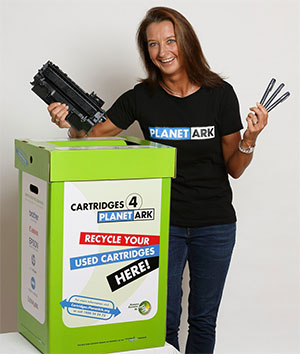Location no longer a problem for mobility-powered Planet Ark

Planet Ark operated from two offices in the Sydney CBD as well as remote offices in the Blue Mountains. To reduce location-dependence and staff travel hassles, the organisation started exploring mobility solutions that would enable staff to access and share information from virtually anywhere.

The vision for the mobile strategy included two major goals: free staff from physical office locations; and improve staff engagement and retention. The latter was a key objective. Providing staff with a way to work the way they prefer builds engagement and helps combat one of the drawbacks of working in small businesses - limited upward career progression.
Planet Ark was founded in 1992 by Jon Dee, Paul Klymenko and Peter Shenstone. The organisation's twenty full-time staff work primarily to bring about measurable environmental change. It relies on support from the community, business and government to deliver and fund its work and campaigns.
Planet Ark’s mobility initiative involved the deployment of a variety of tools and services including data management and sharing tools such as Filemaker and TeamViewer, cloud-based tools like Confluence, Xero, Google Docs, and underlying enablers like VPN & VOIP.
CIO Ian Bridges says simply deploying the tools is only half of the battle.
“The [mobility] tools in themselves don't make it work - you have to find and fit tools to the way people think and work in order to get buy in,” he says.
“People are time poor, especially if your team is small and trying to achieve big things. You can't add to their load, you need to provide the means to work smarter. When it works well, the experience is empowering,” he added.
CIO Bridges says the mobility deployment was not without its fair share of infrastructure and training challenges: “Availability and reliability of fast network connections was an initial bottleneck. This has diminished over the past few years but is a key to making the experience seamless."
Bridges says providing appropriate support was another key challenge to overcome: “Finding the right combination of tools to provide remote support and associated training [and] making sure that communication remains open." It was important to "Keep in touch with each other and what we are doing (and where we are or will be) to provide an additional dimension of support.”
Overcoming the initial challenges of deployment and change management paid because the organisation is now able to provide its staff with multiple touch points to essential data in any location.
“We have also been able to distribute the team among several locations - Melbourne, Sydney, Blue Mountains, and keep everyone connected with VOIP & VPN, lowering office infrastructure costs through hosted services and sharing office spaces."
“For the business team, faster access to information has helped in planning and negotiations, [and] better ability to be productive during travel time.”
While Planet Ark has reaped the benefits of having a flexible workplace, Bridges admits it’s a shift that might not be suitable for every business.
“To make it work you have to find the right balance, and evaluate the needs of the team. Not every position can be mobile. Not every person is suited to it either. It works better when there are a number of team members who interact regularly, and with ad hoc teams that need to meet around the demands of the 'usual' business.”
Having the trust of managers in the process is crucial for workplace flexibility to work, Bridges adds.
“When you have confidence that everyone in your team is committed to the organisation's goals you can create very productive environments with flexible arrangements. Without that it would be hard to make work, and lead to micromanagement which is unhelpful. When we started the move to workplace flexibility there were some doubts, but after a number of years now it has become a natural part of how we work as a team.”
Although Planet Ark has largely done away with the traditions of an office-centric mindset, the organisation still sees the value in staff getting together.
“Mobility can be socially isolating. We still ensure that all staff come together and meet regularly and form ad hoc teams around specific projects. Ensuring engagement is maintained is essential,” Bridges says.
He emphasises that a mobility initiative isn’t just a technological change, but an organisational and cultural transformation that has a direct impact on how each and every staff member will work; something that businesses need to be prepared for prior to deployment.
“Make sure your infrastructure will work and everyone can do what they need with it. Understand what your staff need and how they work best. Be prepared to experiment to find the best mix. Not everything you try will work, so be prepared to cut your losses for some things. Believe in your people and involve them in the process, they are your best asset and the ones who will determine whether it succeeds.”